Attorney Marketing: Ultimate 2025 Growth Guide
Home » SEO for Lawyers » Law Firm Marketing Strategy: Ultimate 2025 Growth Guide
Lawyer SEO is integral to your law firm’s digital marketing strategy. You want to optimize your site for proven Google ranking factors.
But what exactly are those?
In this article, we’ll discuss the most crucial lawyer SEO factors and how they can help you rank higher in search engine result pages, ultimately driving more traffic and leads to your law firm’s website.
Table of Contents
“Google’s 200 ranking factors” is an oversimplification…
Does the search giant’s algorithm have 200 factors to judge a web page?
The 200 Google ranking factors myth started in 2006, when Alan Eustace, a senior vice president of Google, mentioned in a press release that the company uses over 200 Google ranking factors to determine the website ranking. This statement conveyed the algorithm’s complexity to the general public.
In 2010, Google’s Matt Cutts debunked the ranking factor myth by clarifying that the search engine is way more complex than that. The signals that Google and other search engines use to rank are actually much higher than 200. Cutts explained that each of the 200 factors has 50 variations, resulting in 10,000 signals that the algorithm checks to rank websites.
In 2016, Google officially announced that the three most important Google ranking factors are content, links, and RankBrain. While other factors can impact rankings, these three are considered among the most crucial.
Still, while the idea of a specific list of 200 Google ranking factors is a marketing spectacle propagated by SEO marketers, other important ranking factors can impact website rankings. So, let’s begin the article by discussing the most important ranking factors.
How Google ranks a law firm website: 3 most important factors
Content
Creating high-quality and optimized content relevant to the user’s search query is crucial to rank at the top. As per Google, your content should be helpful, reliable, and created for people first and search engines second (more on later).
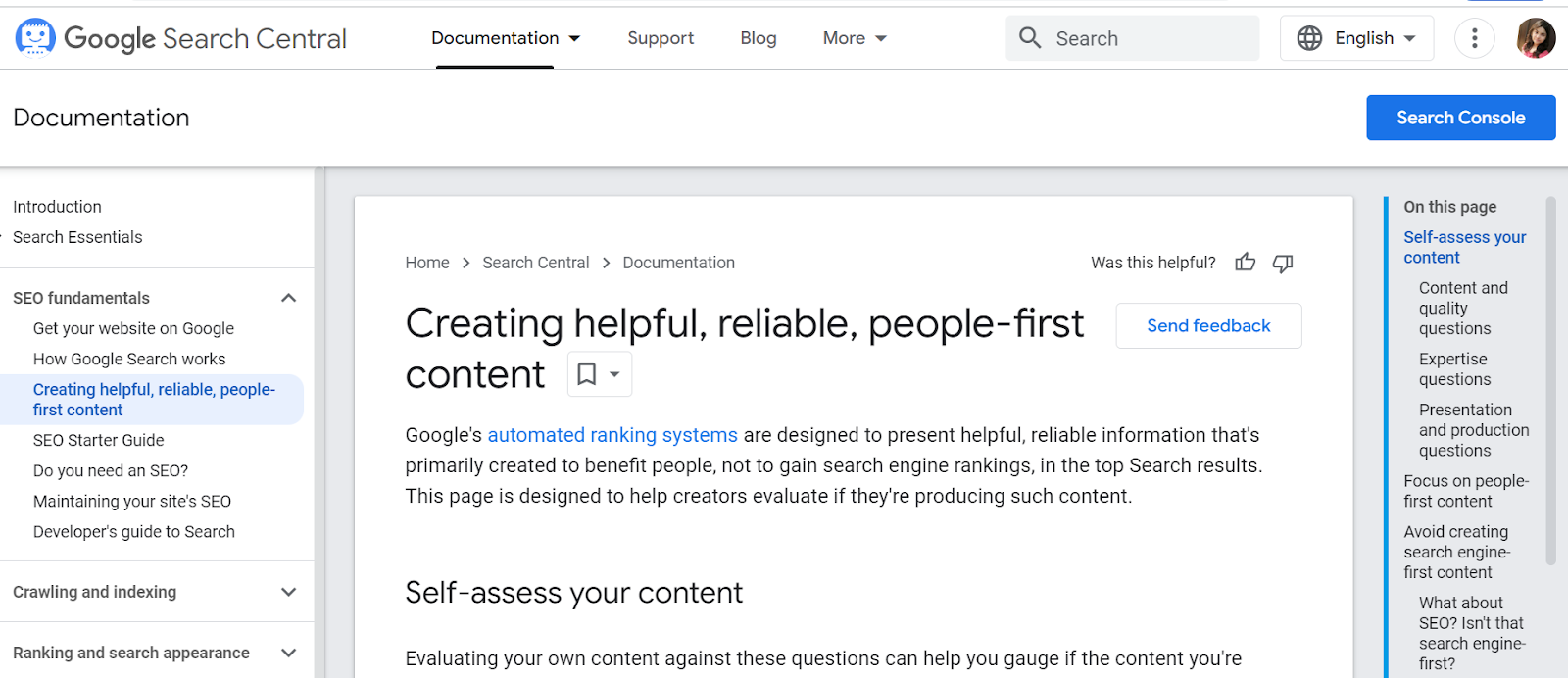
Links
As we discussed, in 2016, Google’s Andrey Lipattsev confirmed that backlinks are a strong ranking factor.
Now, there can be three types of links, backlinks, internal links, and outbound links.
For ranking purposes, not all backlinks have the same weightage. The ones from the aged or high authority domains provide more value to your website position on Google than those from new domains. Besides that, the position of the backlinks on the page also matters.
Internal links pointing toward other web pages of your site help Google understand what they’re about. Hence, the right internal link anchor text matters.
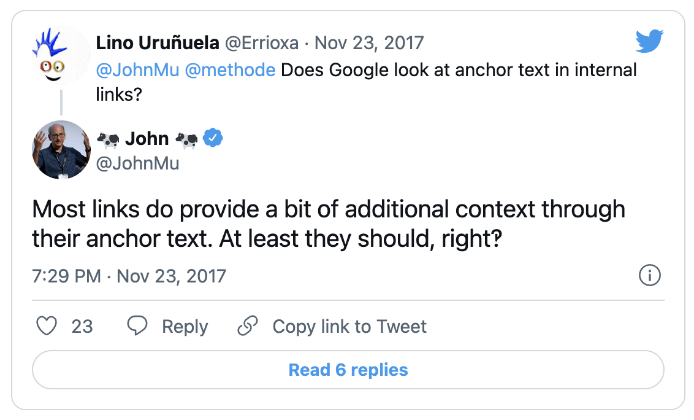
However, too many links can hurt user experience and distract visitors from the content they came for.
Lastly, outbound or external links help Google know the quality of your content–for instance, high-quality websites link to other high-quality web pages.
RankBrain
RankBrain is Google’s way of understanding the user intent of the query that someone has made. It’s developed to deal with queries that Google hasn’t seen before.
But, in 2016, Barry Schwartz tweeted that you can’t optimize for RankBrain.
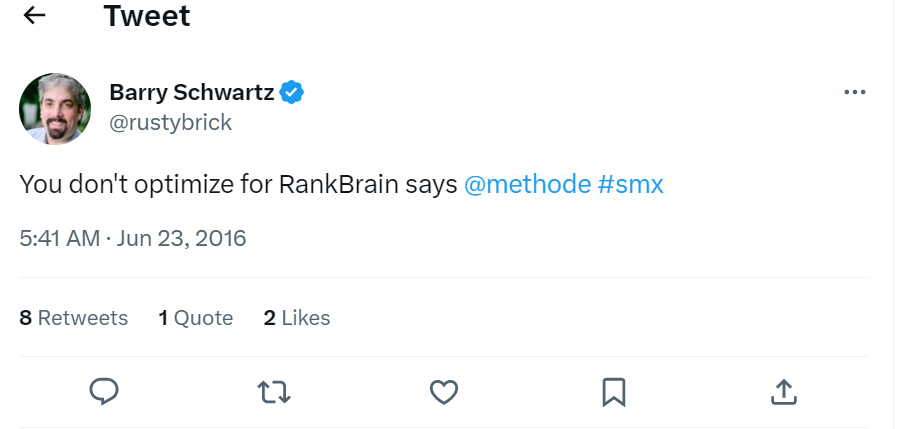
John Mueller, in 2018, emphasized the same thing.

In 2019, the webmaster trends analyst Gary Illyes said that to optimize for RankBrain, you simply optimize for the content users, as they’re the ones Google created this ranking signal for—to improve their experience.

You can use Google’s Natural Language API Demo tool to understand how Google translates your content. All you got to do is copy-paste your web copy and analyze the entities—as per Google, they are “a thing or concept that is singular, unique, well-defined, and distinguishable,” for example, color, date, image, etc. The tool shows you a nice visual understanding of how Google interprets your page.
On-page SEO Google ranking factors
High-quality content
We’ve already discussed with proof that high-quality content is a crucial need for Google ranking.
To create high-quality content, you need to be topically relevant and ensure that it’s unique, fresh, and helpful in answering users’ questions quickly and thoroughly. Plus, avoid duplicate content, as Google may not even index it. Use the target keyword appropriately.
Although there is no perfect length for the content, long-form content generally correlates with performing well in Google.
Freshness
Freshness doesn’t necessarily mean new content — it includes updated content. Google and users both like fresh information.
Updating your content frequently gives you a higher chance of being indexed and ranking higher. Additionally, fresh content helps cover more keywords, keeping your audience informed and engaged.
Relevance and user intent
These two are related to ranking your website through RankBrain. While there’s no particular checklist to know how to create relevant content to rank higher, you can analyze the top-ranking search engine results to know a particular keyword’s relevance.
For instance, a search for “Family lawyer” yields all sorts of results, including how to become one:

Or how much it costs to hire one:
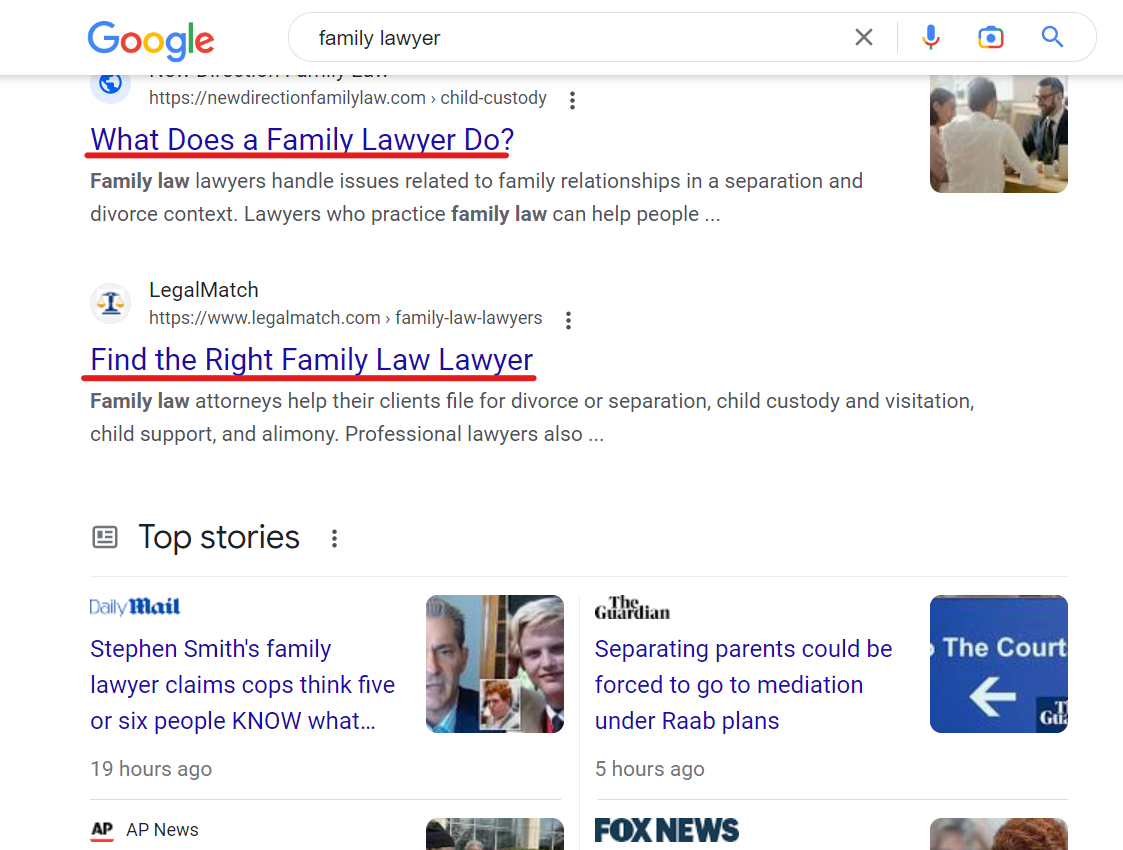
So, it tells you that you’ll need to be more specific with the keyword to create relevant content for your readers. For instance, instead of “Family Lawyer,” create content for “How to Hire a Family Lawyer.”
Metadata
Meta-data is important to Google as they transfer additional information about a page to Google. Metadata components like your description can also impact your click-through rate.

When the target keywords you use in the meta description match the searchers’ query, Google highlights it. It encourages people to notice your website and click on it. Besides meta description, using these keywords in the title tags, URLs, subheads, and throughout the content is also the best SEO practice.
Off-page SEO Google ranking factors
Referring domains
They are external websites sending backlinks — the off-page SEO ranking factor we’ve discussed already — are called referring domains. These RDs determine the quality of your backlinks.
For instance, if a referring domain is spammy or of low quality, the backlink may not be valuable for your website. However, if the referring domain is from a reputable and authoritative source, it can greatly benefit your website’s ranking and exposure. So, it’s essential to focus on building high-quality backlinks from relevant and authoritative referring domains.
Domain authority
Domain authority determines the strength of your law firm’s website in search engine results. It is measured on a scale of 1 to 100, and the higher your domain authority score, the better your chances of ranking higher in search engine results pages (SERPs).

Brand mentions
As John Mueller explains in this video, Google doesn’t use brand mentions to rank websites directly.
English Google SEO office hours from December 17, 2021
Instead, they can increase your brand awareness and indirectly benefit Google search results when users search for your brand.
He further explained that it could be easier to determine the value of brand mentions with a link. However, building a solid brand to enhance customer recognition and trustworthiness is still important.
Page experience Related Google ranking factors
Crawlability and indexability
Crawlability refers to how easily Google bots can scan and index your page, and indexability refers to the ability of bots to follow links and navigate the pages.
To improve the crawlability and indexability of your site, you need to update it regularly, fix broken links, and use relevant keywords and tags to help bots understand your content.
It’s essential because the Google bots are constantly crawling websites — if yours isn’t updated — it might stand in their way of going further. For instance, if they encounter a broken link, they’ll stop there and won’t go to the next page.
Core web vitals (CWV)
Google has announced that Core Web Vitals will be one of the official Google ranking factors as Google considers them essential for improving user experience.
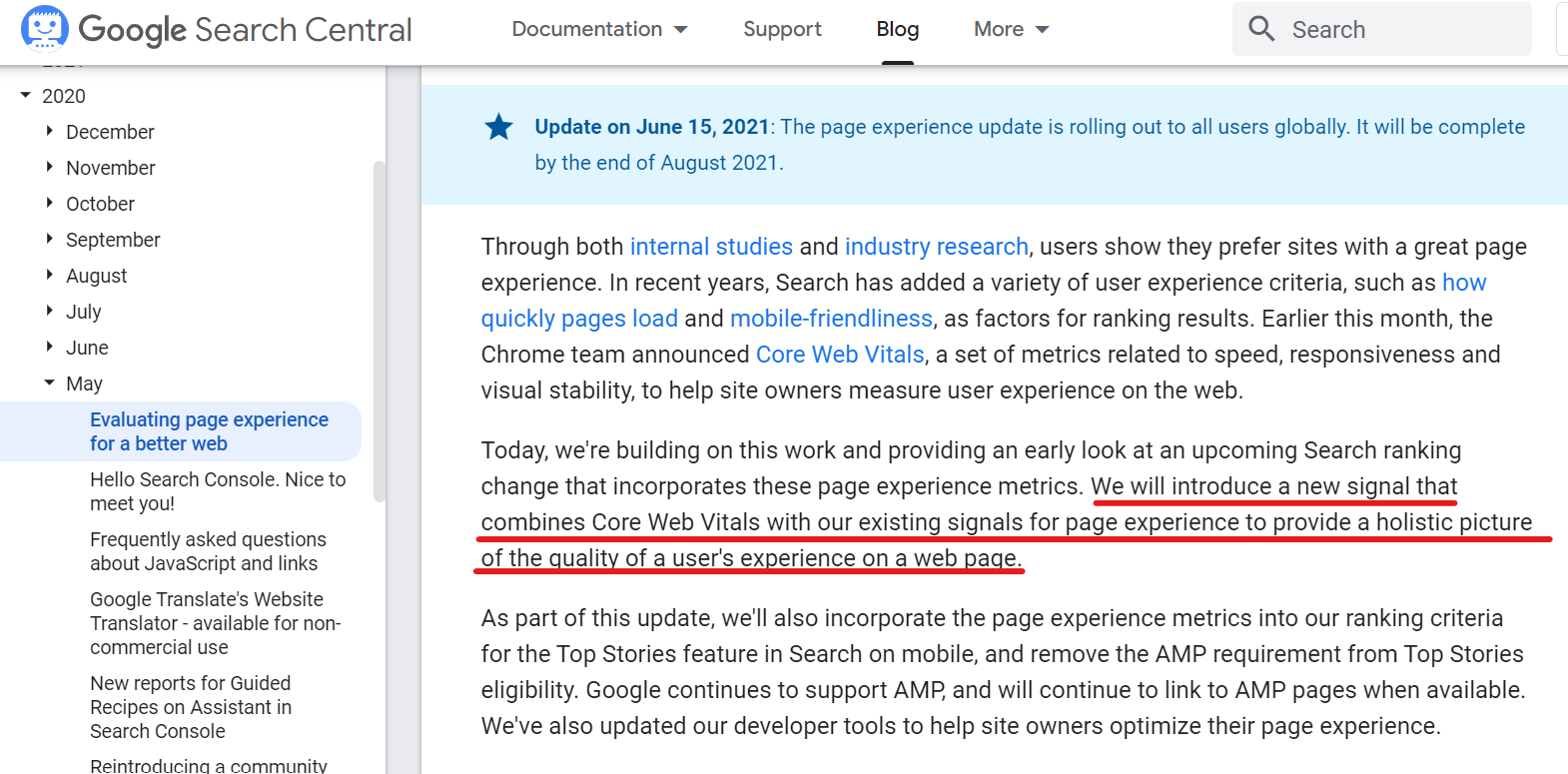
The factors include:
- Largest Contentful Paint: High page loading speed.
- Cumulative Layout Shift: Easy interaction of users with the website—for instance, how they engage with the links and buttons on the webpage.
- First Input Delay: Visual stability—for instance, how long does it take a particular page element to respond to a given user’s input.
You can check your website’s core web vital data in the “Enhancements” section of Google Search Console.
Website security
Google considers website security a ranking factor.
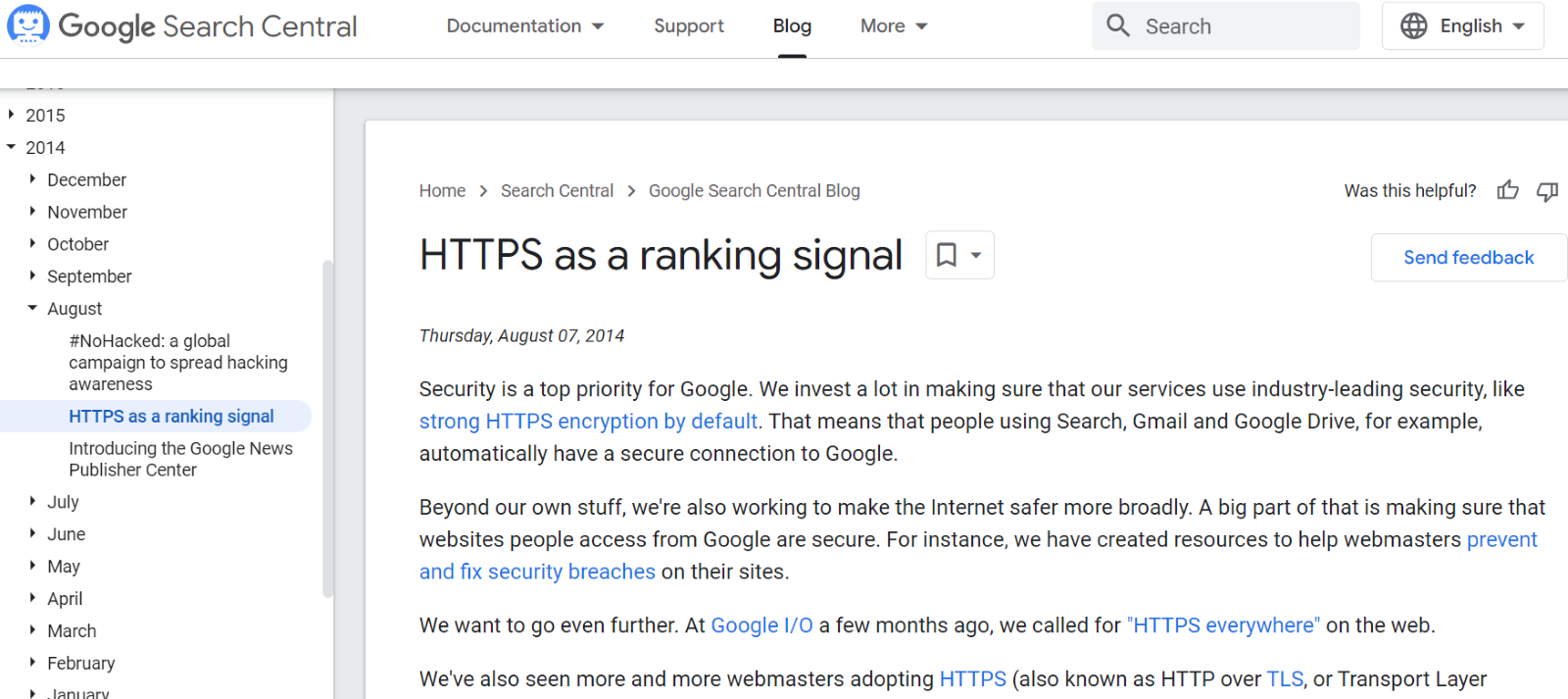
Hence, we can say that having a secure HTTPS website is essential not only for your website visitors but also for improving your search engine ranking.
Mobile-friendliness
It’s 2025, we already know it’s important to have a website that people can easily navigate on their phones. Google understands that too. Hence, they have introduced mobile-friendliness as a ranking factor.
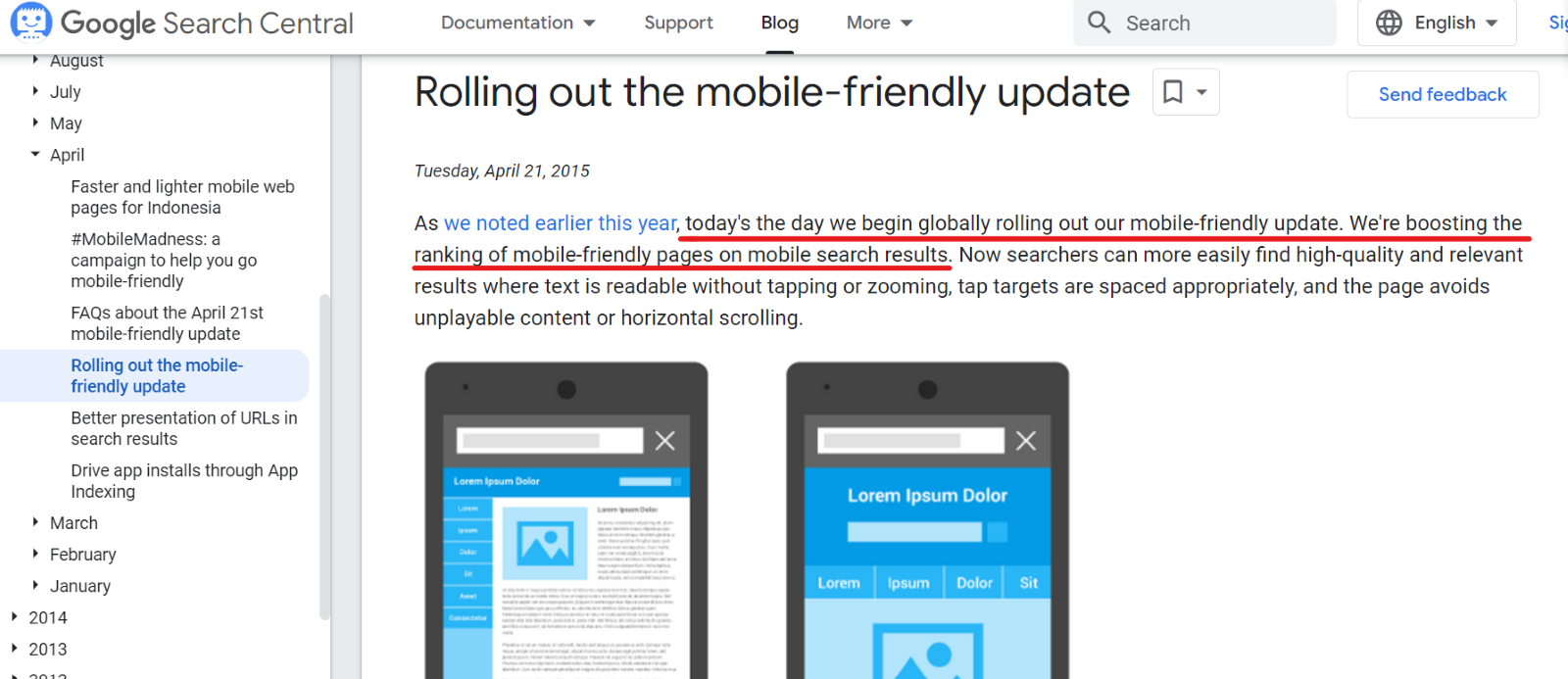
Although, it only applies to individual pages, not the entire website, and affects Google search results on only mobile devices in all languages. You can read more about it on Google Search Central Blog.
While technical projects — clubbed under technical SEO — typically have less impact than content and links, you want to ensure your content is found and indexed. The SEO Browser can you simulate a Google bot.
Local SEO ranking factors
Your Google Business Profile plays a critical role in determining the visibility of your business on Google Maps. There are additional factors that affect your presence in organic local search results (which we already discussed). According to Google, the three most important local SEO ranking factors are: Relevance, Proximity, and Prominence. Let’s look at each of these:

Relevance
Relevance is one of the top three local SEO Google ranking factors. As per Google, “relevance refers to how well a Local Business Profile matches what someone is searching for.”
To improve relevance, Google advises, “add complete and detailed business information to help Google better understand your business and match your profile relevant searches.”
Prominence
Prominence is a local SEO Google ranking factor that your popularity in the offline world determines. The more well-known your business is, the higher your prominence, and the more likely you are to appear in top search results.
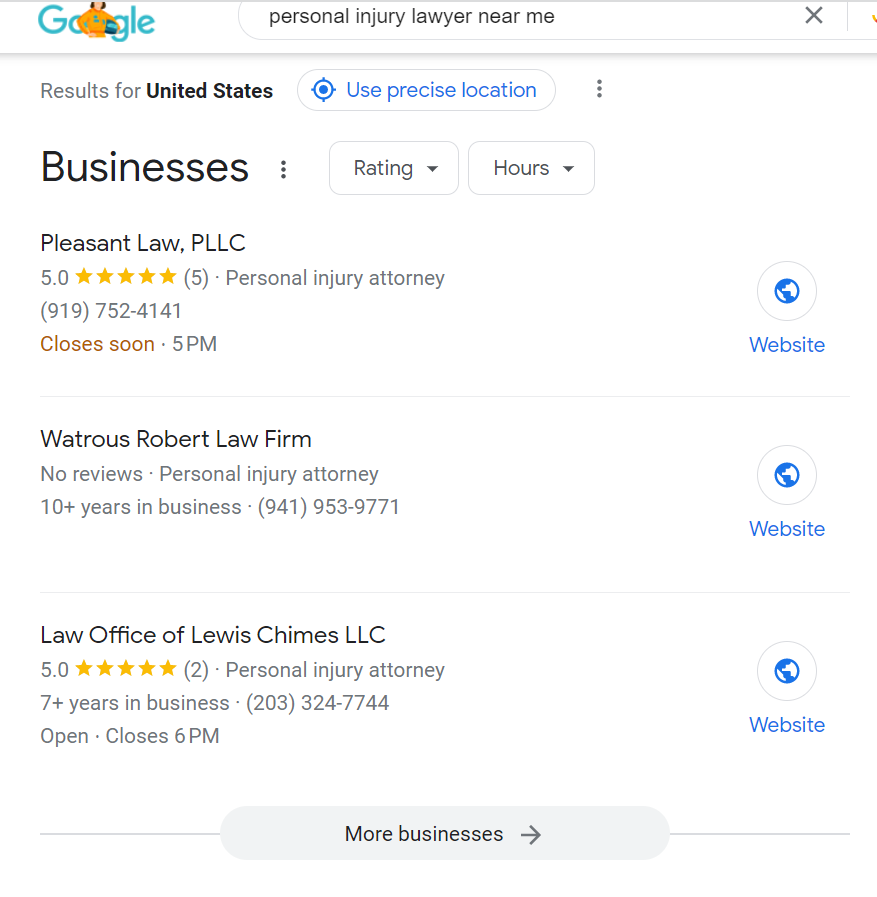
For instance, if you search for popular sports shoe stores nearby, top brands like Adidas and Nike appear first. Hence, you must improve your brand awareness to increase the prominence and local search visibility.
Proximity
Proximity is determined by the physical distance between a business and the searcher. The closer a business is to the searcher, the higher its chances of appearing in its search results.
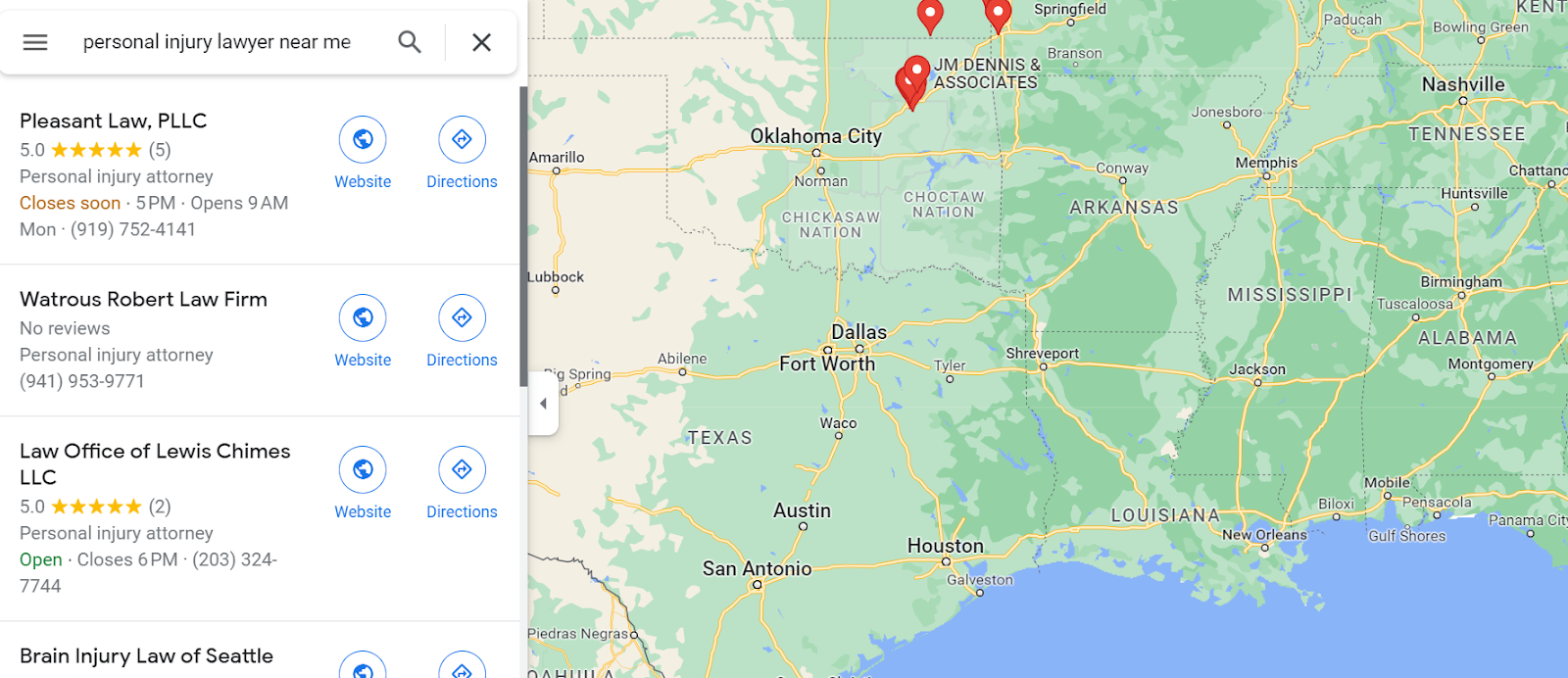
Hence, you must update your Google My Business account’s address and ensure your location is visible on Google Maps.
Optimize your law firm website keeping the above SEO Google ranking factors in mind!
Overall, SEO for lawyers is important, and these Google ranking factors are crucial to boosting your online presence and visibility. While Google may not rely on a fixed set of 200 factors for ranking websites, it considers many factors, including website security, mobile-friendliness, domain authority, and local SEO ranking factors like relevance, prominence, and proximity.
Even the user search history may play a role in determining the exact results, as Google likes to serve personalized results.
So, optimize your website for these ranking factors. Remember that search engine optimization is an ongoing process requiring patience, effort, and consistency to achieve long-term success.
SEO for Lawyers: (Step-by-Step) Law Firm SEO Guide
-
Ch 1
SEO for Law Firms
Read Article
-
Ch 2
Lawyer SEO Ranking Factors
Read Article
-
Ch 3
Legal Keyword Research
Read Article
-
Ch 4
Link Building for Attorneys
Read Article
-
Ch 5
Legal Content Optimization
Read Article
-
Ch 6
Local SEO for Lawyers
Read Article
-
Ch 7
GMB for Law Firms
Read Article
-
Ch 8
Tracking SEO Results
Read Article
-
Ch 9
Lawyer SEO Stats
Read Article